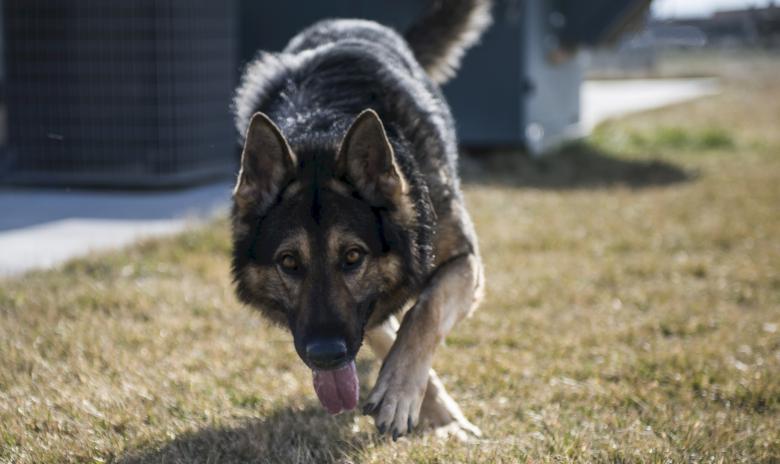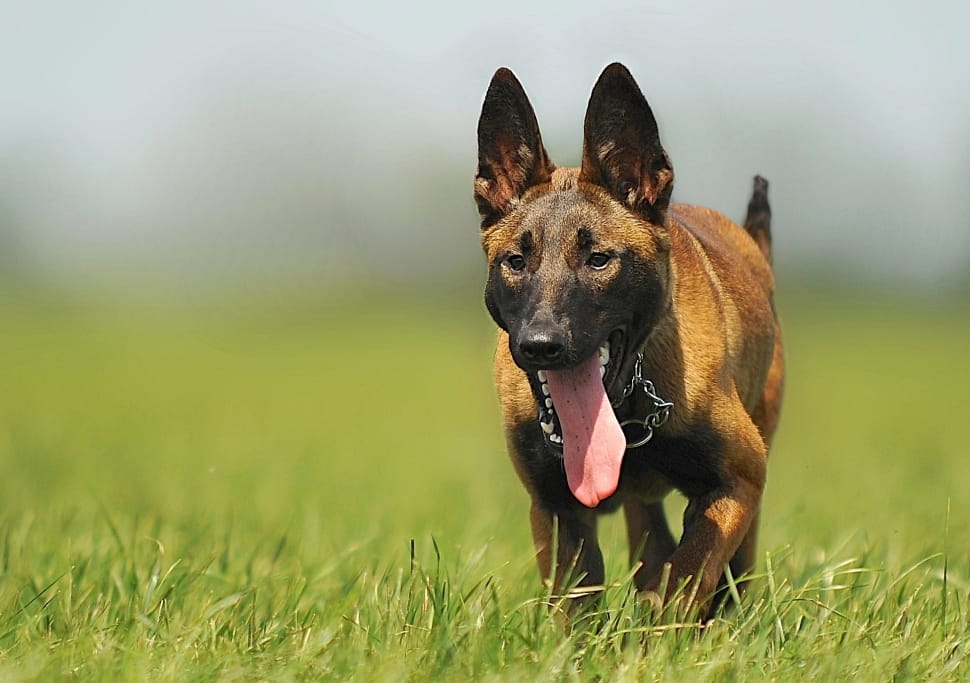The Worst Dog Food for German Shepherd – Unveiling the Truth

German Shepherds are one of the most popular and intelligent dog breeds worldwide. Everyone loves to have an obedient and loyal GSD in their home due to its intelligence and versatility. As responsible pet owners, it’s crucial to provide them with the best possible care, starting with their diet. Beware of the worst dog food for german shepherd dog or puppy. Choosing the perfect GSD dog food makes them healthier and more loyal. Let’s delve into the worst dog food options for German Shepherds, shedding light on the potential hazards and outlining the key nutrients they need for a thriving life.
Worst dog food for German Shepherd is the foods which contain Ethoxyquin, BHA, BHT, Propyl Gallate and Xylitol
Understanding the Unique Nutritional Needs of German Shepherds
Before diving into the worst dog food choices for German Shepherds, let’s explore their distinctive nutritional requirements. As a massive dog breed the energy levels of German Shepherds are very high. In order to maintain their health properly, balanced food with essential nutrients is necessary.
- Protein: German Shepherds are at their best when nourished with a diet abundant in premium-quality protein. High-quality protein plays a major role in muscle growth and development. Animal-based proteins like chicken, turkey, and lamb are excellent choices for them.
- Fat: Healthy fats are crucial for maintaining a German Shepherd’s lustrous coat and supporting its immune system. Food with omega 6 & omega 3 fatty acids will do wonders for GSDs.
- Carbohydrates: While dogs are primarily carnivores, they still benefit from moderate carbohydrates for sustained energy. Opt for whole grains like brown rice or sweet potatoes.
- Vitamins and Minerals: Essential vitamins and minerals are essential for overall health, so ensure the dog food you choose contains a well-rounded mix of these nutrients.
Identifying the Worst Dog Food for German Shepherd
Dog Foods with Excessive Fillers
When it comes to providing our loyal German Shepherds with the best nutrition, one of the critical aspects to be mindful of is the presence of excessive fillers in their dog food. Beware of dog foods that are laden with fillers like corn, wheat, and soy. These ingredients offer limited nutritional value and can lead to allergies or digestive issues in German Shepherds.
Excessive fillers in dog food can contribute to weight management challenges for our German Shepherds. As these fillers are often high in carbohydrates, they can add unnecessary calories to the diet, potentially leading to weight gain and obesity.
Artificial Preservatives and Additives
Dog foods containing artificial preservatives and additives can be harmful to your German Shepherd’s health. These sneaky components are often added to pet foods to extend their shelf life, improve texture, and enhance flavours. Commonly used artificial preservatives include BHA (butylated hydroxyanisole), BHT (butylated hydroxytoluene), and ethoxyquin. Try to find food brands with plenty of natural preservatives like Vitamin E & Vitamin C.
In addition to preservatives, dog foods may contain a plethora of artificial additives. Artificial flavors and colors might be enticing, but they often mask the true taste and appearance of the food. By relying on these additives, dogs may develop a preference for artificial flavors, making it challenging for them to enjoy natural and nutritious food without added chemicals. Moreover, some artificial sweeteners, such as xylitol, can be highly toxic to dogs. Even small amounts of xylitol ingestion can lead to a sudden drop in blood sugar levels and result in symptoms like seizures, weakness, and, in severe cases, liver failure.
High Grains Content
German Shepherds belong to the category of carnivorous animals, meaning their natural diet primarily consists of meat and animal-based protein. German Shepherds have a limited ability to digest grains, especially if they are used as the primary ingredient in dog food. Over time, this can lead to nutrient deficiencies and potential health problems.
Moreover, some German Shepherds may develop food sensitivities or allergies to grains over time. Allergic reactions can manifest through skin irritations, itching, and excessive licking or scratching. Long-term exposure to high-grain diets may exacerbate these sensitivities, causing chronic discomfort for your beloved companion.
Prioritize high-quality protein sources, consider grain-free options, and ensure a well-balanced diet to support your German Shepherd’s active lifestyle and overall well-being.
Foods with By-Products
These By-products are common ingredients used in pet food manufacturing, derived from various parts of animals not typically consumed by humans, such as organs, bones, and other leftovers from the meat industry. Avoid dog foods that contain unidentified meat by-products, as they lack transparency and could include low-quality or even harmful ingredients.
For German Shepherds, who require a diet rich in high-quality protein to support their active lifestyle and muscular build, relying on foods with unspecified by-products can be risky. Without knowing the precise protein sources, it becomes challenging to gauge the nutritional value and ensure your dog is getting the essential nutrients they need to thrive.
High Sodium Content
Sodium is an essential mineral required by dogs for various bodily functions, but excessive amounts can pose significant health risks. Unfortunately, many commercial dog foods contain high levels of sodium, potentially putting your beloved canine companion at risk. Excessive sodium levels in dog food can lead to dehydration and kidney problems, making it crucial to choose low-sodium options for your German Shepherd.
German Shepherds are prone to certain heart and kidney conditions, and a diet high in sodium can exacerbate these issues. Excessive sodium intake forces the heart and kidneys to work harder to filter and eliminate the excess salt. Over time, this added strain can lead to cardiovascular problems and may contribute to the development of kidney disease.

The Impact of Feeding Worst Dog Food to German Shepherds
Feeding your German Shepherd low-quality or inappropriate dog food can have severe consequences on their health and well-being. Here are some potential effects of providing them with the worst dog food options:
Allergic Reactions: Low-quality ingredients can trigger allergies, causing skin rashes, itching, and discomfort in your German Shepherd.
Digestive Issues: Foods with excessive fillers and grains can lead to digestive problems, including gas, bloating, and diarrhea.
Malnutrition: Worst dog foods lacking essential nutrients can lead to malnutrition, leading to weakness, lethargy, and stunted growth in German Shepherds.
Obesity: Dog foods with high-fat and calorie content can contribute to obesity, putting your German Shepherd at risk for various health issues.
Making Informed Choices for Your German Shepherd’s Diet
Reading Labels: Always read the labels of dog food products carefully. Choose options with named meat sources listed as the primary ingredients.
Grain-Free or Limited Grains: Consider grain-free or limited grain options to prevent potential digestive issues caused by excessive grain consumption.
Opting for Premium Brands: Invest in premium dog food brands that prioritize high-quality ingredients and are free from artificial preservatives and additives.
Consulting Your Veterinarian: Your veterinarian is a valuable resource in helping you choose the best dog food for your German Shepherd based on their individual needs and health requirements.
FAQ: Nutrition Guide for German Shepherds
1. What foods are not good for German Shepherds?
It’s essential to be cautious about what you feed your German Shepherd to ensure their well-being. Some foods that are not good for German Shepherds include:
- Chocolate: Chocolate contains theobromine, which is toxic to dogs and can cause various health issues, including vomiting, diarrhea, and even seizures.
- Grapes and Raisins: These seemingly harmless fruits can lead to kidney failure in dogs, including German Shepherds.
- Onions and Garlic: These foods, in any form (cooked, raw, or powdered), can cause damage to a dog’s red blood cells and lead to anemia.
- Xylitol: Found in sugar-free products like gum or candy, xylitol can be extremely dangerous for dogs, leading to rapid insulin release and low blood sugar levels.
2. Is rice bad for German Shepherds?
Rice can be a safe and digestible carbohydrate source for German Shepherds when cooked plain without any added seasonings or spices. In moderation, white or brown rice can serve as a part of a balanced diet for your dog. However, always consult your veterinarian to determine if rice is suitable for your individual dog’s dietary needs.
3. What fruits are toxic to German Shepherds?
While fruits can be a healthy addition to a dog’s diet, certain fruits are toxic to German Shepherds and should be avoided. These include:
- Grapes and Raisins: As mentioned earlier, even a small amount can lead to kidney failure in German Shepherds.
- Avocado: Avocado contains persin, which is harmful to dogs and can cause stomach upset or more severe reactions.
- Citrus Fruits: The peels, seeds, and stems of citrus fruits contain essential oils and compounds that can be toxic to dogs, leading to digestive issues.
4. Is Dal (lentils) good for German Shepherds?
Dal, or lentils, can be a valuable source of protein and fiber for German Shepherds. It’s a nutritious alternative to meat-based protein, especially for dogs with specific dietary requirements or allergies. However, it’s best to introduce lentils gradually into your dog’s diet and observe for any adverse reactions. Always seek advice from your vet before making significant changes to your dog’s food.
5. Is fish good for German Shepherds?
Yes, fish can be beneficial for German Shepherds due to its rich omega-3 fatty acids content, which supports healthy skin, coat, and joint health. Feeding your dog cooked, boneless fish like salmon or trout in moderation can be a great addition to their diet. However, be cautious of bones, as they can be a choking hazard or cause internal injuries. Also, avoid giving raw fish, as it may contain harmful parasites.
Price of German Shepherd Dog or Puppies are mostly affordable, so its a popular breed. Choosing the right dog food for your German Shepherd is a crucial aspect of responsible pet ownership. Avoiding the worst dog food choices and opting for high-quality, nutritious options will contribute significantly to their overall health, longevity, and happiness. Remember, a well-balanced diet is the foundation for your beloved German Shepherd’s thriving and vibrant life.

